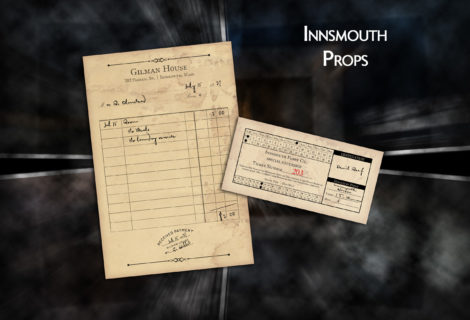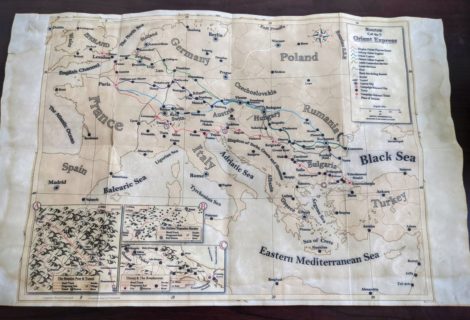Styles of Fate

The Authorship Spectrum
Before I get into what changes I’m making to Fate Core’s rules as written, I think it’s important to look at how I apply those rules to get the style of game I’m going for. The is because I have come to recognize that there are a lot of different styles of gameplay that emerge from Fate’s default rules. I think this is part of the reason that Fate has been so successful – it can accommodate very different game styles without requiring an actual alteration of the rules – you just have to apply the existing rules differently. However, this can also make exposing new players to the game a bit challenging.
There are lot of ways to describe and categorize tabletop roleplaying games, but one key idea that I have found that plays a role in how people approach Fate is the question of authorship. When it comes to authorship, you can think of all games as existing somewhere along a spectrum.
At one end of the spectrum, you have what I think of as the traditional or GM-led style of play, which is characterized by the GM having control over and knowledge of the game world that the players do not. Players only have information which their characters have, and they are only able to influence the game world through the actions of their characters. The GM controls all elements of the game world and possesses knowledge of the game world that is secret until the players uncover it through the actions of their characters. At the most extreme edge of this spectrum you also have GM railroading, where the players only control the moment-to-moment actions of their characters and have little to no say in where the party of PCs goes and what approaches they can take.
At the other end of the spectrum, you have what I tend to describe as a shared authorship style of play. This style is characterized by both the players and the GM being able to control elements of the game world on an equal footing and everyone having access to all information about the game world and the characters that reside within it. There are very few differences between the players and the GM in this style of game, and everyone has to actively distinguish between what they know about the game world and what their characters know.
Default Fate
I’d say that the default rules for Fate fall somewhere in the middle of the spectrum, though exactly where depends on how you interpret and apply some of the rules in Fate Core. This is most evident in how tables utilize the rules for Game Creation. Some groups start from scratch and create a new game world and setting, create characters and game aspects, create issues and some NPCs, and get straight to playing the game – using only the aspects they’ve created to drive play (more shared authorship). Other groups identify key aspects and issues and create characters during session zero, then take a break so the GM can prep everything else before the next session (more GM-led).
Games that make more use of secret or hidden aspects naturally tend more towards the GM-led end of the spectrum. There is also a lot of flexibility built-in to what players can do with the Create an Advantage action. While this action allows characters to change the circumstances around them to provide some sort of benefit, that still leaves some wiggle room. Some groups allow the CA action to alter those circumstances in ways that go beyond what the characters themselves can directly accomplish – for example, introducing a door to exit to a building or declaring that the ground ahead is a marsh in order to slow a fleeing enemy. This application of the CA action enables players to alter the game world beyond their characters – very shared authorship.
Using aspects and fate points to declare a story detail does not have a lot of defined limitations in the default rules, which provides a lot of potential for your players to influence the game world. Compels can be primarily viewed as a tool of the GM, with players occasionally compelling one another’s PCs if there is conflict within the party, but some groups also allow players to make broader use of compels – including compelling NPCs.
Terrible Fate Default
Since my goal is to play scenarios from Call of Cthulhu and other mythos games, my implementation of Fate will be focused on investigative horror gameplay. This means the game will tend more towards the GM-led end of the spectrum. The GM will have a great deal of information not initially available to the players, and the players will primarily interact with the game world through the actions of their characters. Players will be able to exercise limited narrative authority over the game world, but the limits of that authority will be narrowly defined. The GM will have broad authority over the world – and even some authority over the actions of PCs via compels and similar mechanics – while the players will determine where their PCs go and what they do when they get there. In other words, Our Terrible Fate will probably more closely resemble a traditional tabletop RPG than it will a freeform story game.






Recent Comments